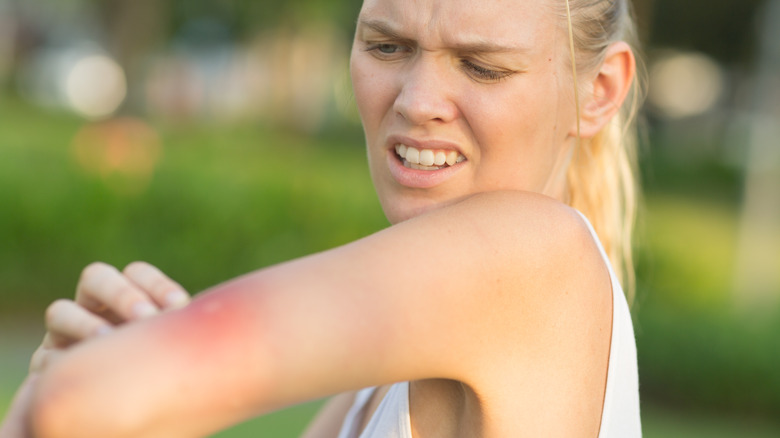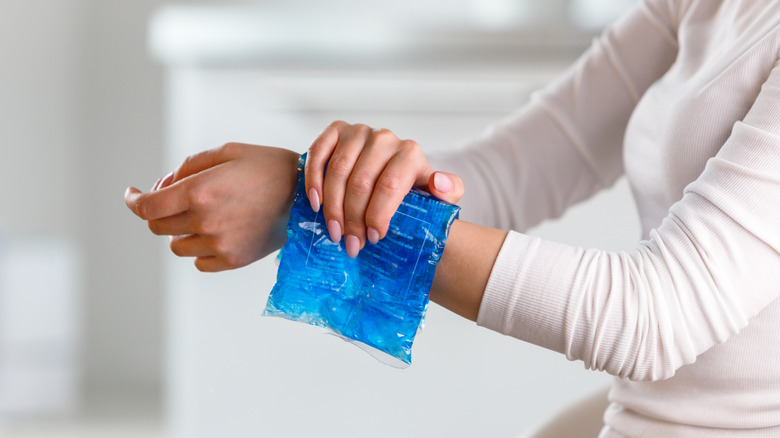What Happens To Your Body When You Get A Bee Sting
Nothing ruins a perfectly pleasant day like a bee sting. Even if you aren't allergic, one jab from these honey-making pollinators can cause swelling, itching, and pain. Here's what happens to cause that discomfort.
The good news about bees is that generally these insects will not go out of their way to sting you. Usually, the only reason you get stung is if you've wandered too close to a hive or accidentally stepped on a bee. So if you're taking a stroll through the park and see a single yellow and black insect buzzing by, don't panic.
But accidents happen, and there is a good chance that you'll get stung by a bee at least once in your life, especially if you spend a lot of time outdoors. You'll know you've been stung if you feel a sharp pain somewhere on your body. You will notice swelling, redness, and itchiness developing right away around the sting site. These symptoms are a result of your body's immune system defending against the bee's venom. Bee venom contains a chemical called melittin, which immediately begins to break up your red blood cells and cause them to burst (via Bee Culture). It also creates pain and a burning sensation in the body. Bee venom also contains histamine, which contributes to itchiness and red spots on your skin.
For most people, bee stings sound worse than they really are
Unless you're allergic to bee venom, stings are nothing more than a nuisance, albeit a painful one. Most immune systems are well-equipped to fight against and neutralize this threat within a short period of time. As soon as the melittin in the bee venom begins to affect your body's red blood cells, white blood cells rush to the affected area. This is what causes swelling around the sting (via Best Life). Your body will also produce its own supply of histamine, which can add to the swelling and itching effect.
Bee sting symptoms usually last for a few days while your body fights to remove the venom from your system. Most stings do not need medical attention. You can manage the pain by taking aspirin or acetaminophen and control the swelling with the use of antihistamine creams or ingestible products (via Medical News Today).
To prevent bee stings from happening in the first place, be aware of your surroundings when you go outside and try to avoid hives or nests. Also, be sure to cover any food or drink items while outdoors as these can attract insects. Finally, if you do see a bee, stay calm and try not to swat at it. You may end up scaring the bee and getting a sting anyway.


